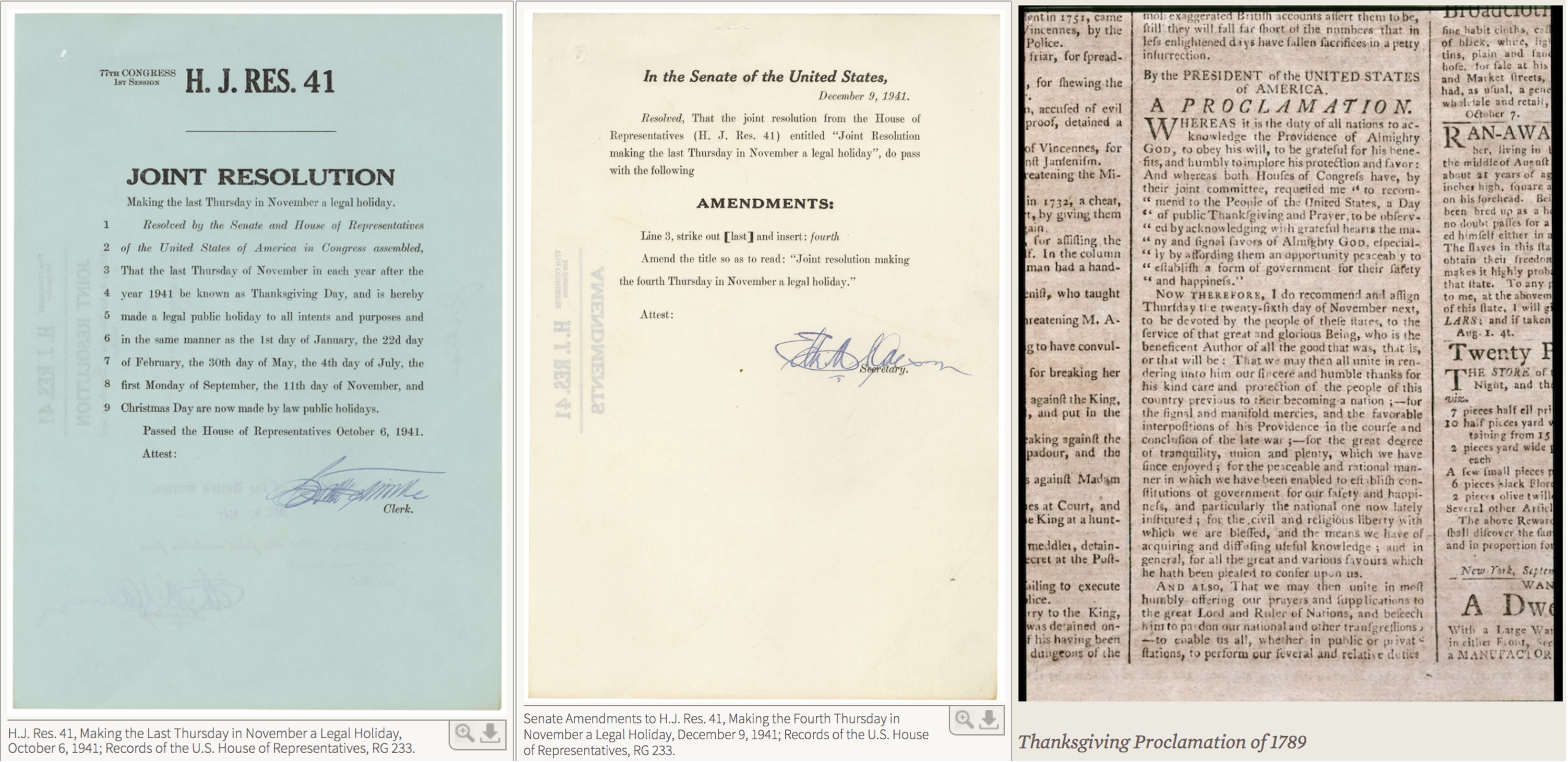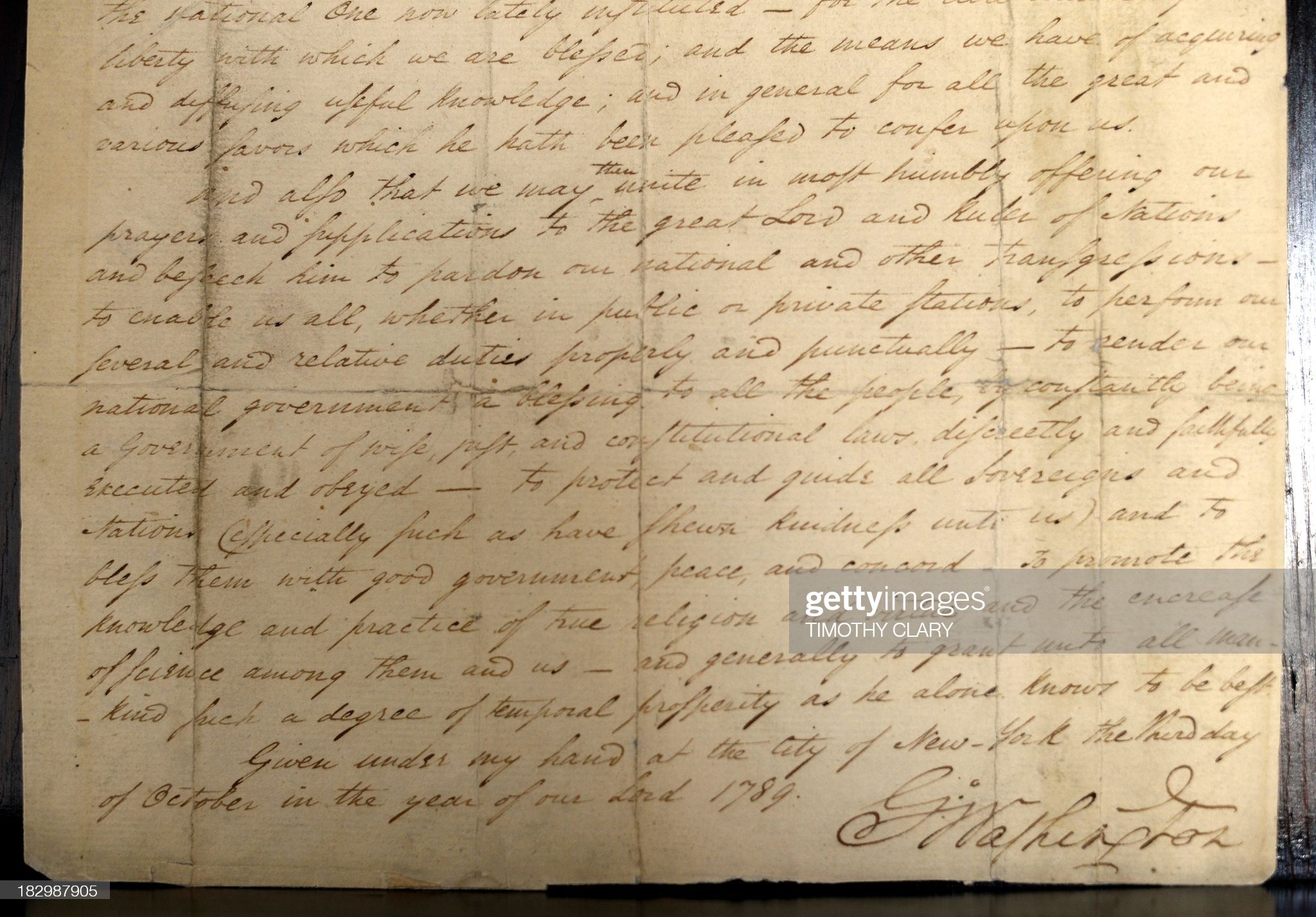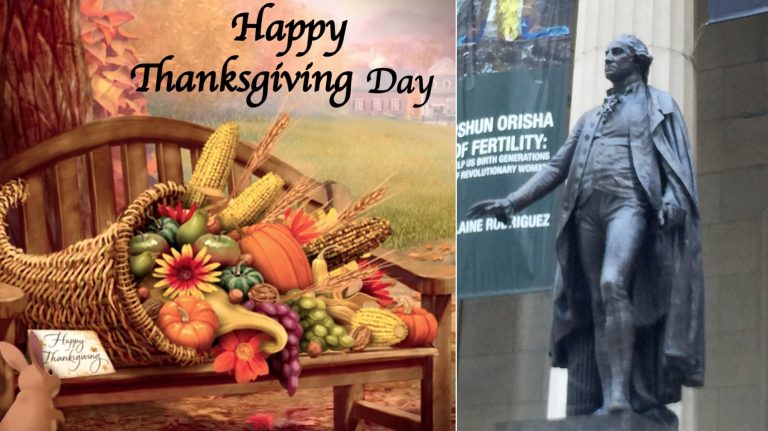For more than two centuries, Thanksgiving has been celebrated by families and states around the world. All Americans are familiar with setting aside time for the Thanksgiving holiday hallmarked by the gathering of friends and family.
In his special last Thanksgiving, late radio show host Rush Limbaugh said, “The creation of the actual Thanksgiving holiday by George Washington was largely about thanking God.”
‘A Day of Thanksgiving‘
According to mountvernon.org, “George Washington first mentioned the possibility of a national Thanksgiving Day in a confidential letter to James Madison in August 1789 (just months after taking office), asking for his advice on approaching the Senate for their opinion on “a day of thanksgiving.”
By the end of September 1789, a resolution had been introduced to the House of Representatives. It asked that “a joint committee of both Houses be directed to wait upon the President of the United States, to request that he would recommend to the people of the United States a day of public thanksgiving.”
According to archives.gov, the first Federal Congress passed a resolution asking the President of the United States to recommend a national day of thanksgiving.
Success
You are now signed up for our newsletter
Success
Check your email to complete sign up
According to mountvernon.org, “George Washington knew the value of a thanksgiving day long before becoming our first president. During the Revolutionary War, he would order special thanksgiving services for his troops after successful battles, as well as publicly endorse efforts by the Continental Congress to proclaim days of thanks, usually in recognition of military victories and alliances.”
In 1789, President George Washington issued a proclamation designating Nov. 26 of that year to be a national day of thanksgiving. It would recognize the role of Providence in creating the new United States and the new federal Constitution.


Early Americans sacrificed a great deal to create this nation. For the newly ratified Constitution, those who participated in the Constitutional Convention realized its uniqueness. George Washington called it a miracle, emphasizing how privileged they were to be part of it. Several of the signers expressed a feeling of sacred honor.
Later, President Abraham Lincoln took steps towards designating it a permanent federal holiday, according to mountvernon.org.
Appendix:
GEORGE WASHINGTON’S THANKSGIVING DAY PROCLAMATION OCTOBER 3, 1789
By the President of the United States of America.
A Proclamation.
WHEREAS it is the duty of all nations to acknowledge the providence of Almighty God, to obey His will, to be grateful for His benefits, and humbly to implore His protection and favor;
and whereas both Houses of Congress have, by their joint committee, requested me “to recommend to the people of the United States a day of public thanksgiving and prayer, to be observed by acknowledging with grateful hearts the many and signal favors of Almighty God, especially by affording them an opportunity peaceably to establish a form of government for their safety and happiness.”
Now, therefore, I do recommend and assign Thursday, the 26th day of November next, to be devoted by the people of these States to the service of that great and glorious Being who is the beneficent author of all the good that was, that is, or that will be; that we may then all unite in rendering unto Him our sincere and humble thanks for His kind care and protection of the people of this country previous to their becoming a nation; for the signal and manifold mercies and the favorable interpositions of His providence in the course and conclusion of the late war; for the great degree of tranquility, union, and plenty which we have since enjoyed; for the peaceable and rational manner in which we have been enabled to establish constitutions of government for our safety and happiness, and particularly the national one now lately instituted; for the civil and religious liberty with which we are blessed, and the means we have of acquiring and diffusing useful knowledge; and, in general, for all the great and various favors which He has been pleased to confer upon us.
And also that we may then unite in most humbly offering our prayers and supplications to the great Lord and Ruler of Nations, and beseech Him to pardon our national and other transgressions; to enable us all, whether in public or private stations, to perform our several and relative duties properly and punctually; to render our National Government a blessing to all the people by constantly being a Government of wise, just, and constitutional laws, discreetly and faithfully executed and obeyed; to protect and guide all sovereigns and nations (especially such as have shown kindness to us), and to bless them with good governments, peace, and concord; to promote the knowledge and practice of true religion and virtue, and the increase of science among them and us; and, generally, to grant unto all mankind such a degree of temporal prosperity as He alone knows to be best.
Given under my hand, at the city of New York, the third day of October, in the year of our Lord one thousand seven hundred and eighty-nine.
G. Washington.
Related report:
After 200 Years, Jefferson’s Wisdom Is Even More Relevant for Today
This article was originally published on Nov 26, 2021.














